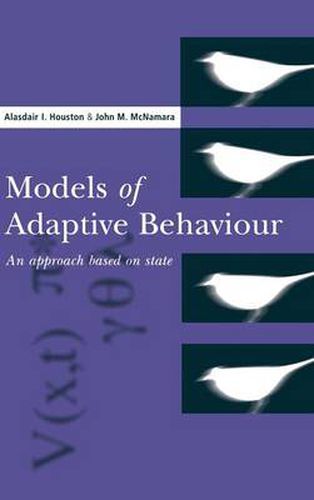Readings Newsletter
Become a Readings Member to make your shopping experience even easier.
Sign in or sign up for free!
You’re not far away from qualifying for FREE standard shipping within Australia
You’ve qualified for FREE standard shipping within Australia
The cart is loading…






Models of Adaptive Behaviour sets out a framework for adaptive explanations of behaviour, and applies this to give analyses of a range of biological issues such as energetic gain, energy-predation trade-offs, dynamic games, state-dependent life histories, annual routines and fluctuating environments. It gives a definitive account of this exciting new field, summarizing previous research, presenting new material and suggesting directions for future research. Organisms differ in terms of their state - for example in their size, energy relations or temperature - which often affects their behaviour. The framework adopted in this book takes this into account, and provides a common currenct for comparing diverse actions. Ultimately this could lead to the development of state-dependent dynamic models. This book will be a revelation for graduate students and researchers interested in behavioural or evolutionary biology.
$9.00 standard shipping within Australia
FREE standard shipping within Australia for orders over $100.00
Express & International shipping calculated at checkout
Models of Adaptive Behaviour sets out a framework for adaptive explanations of behaviour, and applies this to give analyses of a range of biological issues such as energetic gain, energy-predation trade-offs, dynamic games, state-dependent life histories, annual routines and fluctuating environments. It gives a definitive account of this exciting new field, summarizing previous research, presenting new material and suggesting directions for future research. Organisms differ in terms of their state - for example in their size, energy relations or temperature - which often affects their behaviour. The framework adopted in this book takes this into account, and provides a common currenct for comparing diverse actions. Ultimately this could lead to the development of state-dependent dynamic models. This book will be a revelation for graduate students and researchers interested in behavioural or evolutionary biology.